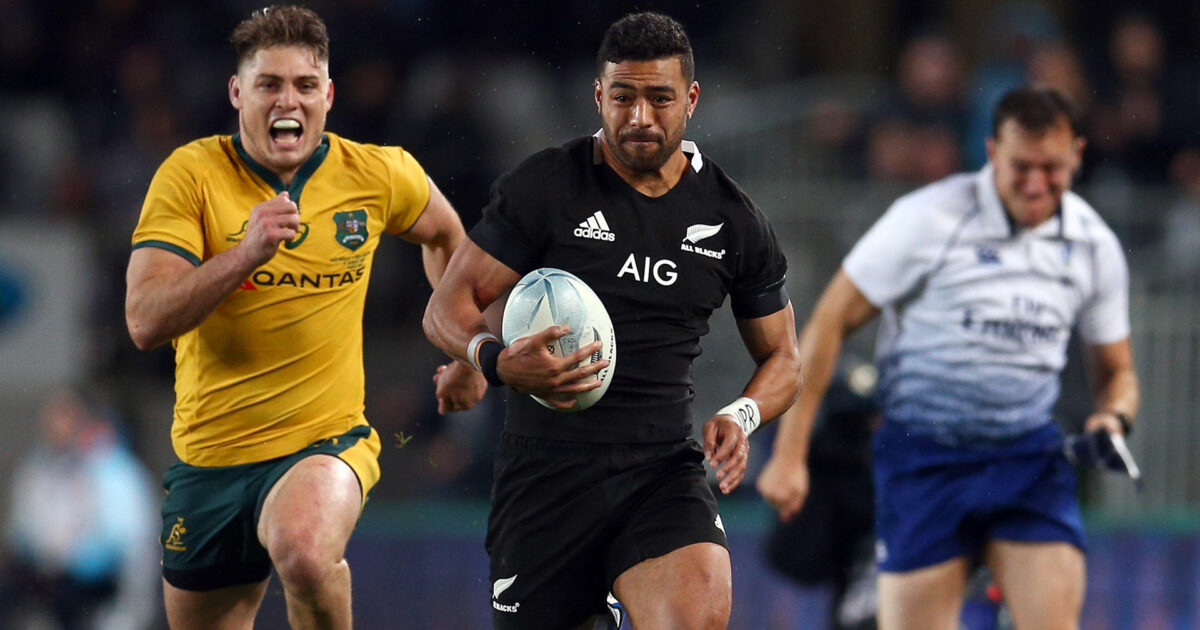Wallabies expect All Blacks to name Richie Mo'unga in 10 jersey

The Wallabies believe they know who to expect in the All Blacks‘ number 10 jersey on Sunday afternoon.
There is plenty of selection debate in a number of areas in the All Blacks team ahead of their first Bledisloe Cup test against Australia in Wellington, and the most high profile comes at first receiver, with Beauden Barrett and Richie Mo’unga battling for the role.
Mo’unga was the primary selection at 10 during the 2019 Rugby World Cup with Barrett at fullback, and it would be plausible for selectors to go with the Crusader again following a standout year in another Super Rugby title-winning season.
Wallabies assistant coach Matt Taylor says both men are exceptional talents.
“World class players. You’d think that Mo’unga will start, maybe with Aaron Smith, but that doesn’t mean that they [the All Blacks] might have some selection shocks or try different people out early on in their preparation. We believe that Mo’unga will probably start.”
Barrett returning to his post at fullback is a likely option, but if form is solely to go by, his case struggles to compete with that of younger brother Jordie and Will Jordan, who have been the two best outside backs in 2020.
Throwing winning records into the mix adds some spice to the debate. Mo’unga has won seven out of 10 tests when starting at first-five for New Zealand, while Barrett has won 37 out of 43 starting at 10, resulting in an 86 per cent winning percentage.
The Wallabies may prefer Mo’unga starting, with their 47-26 demolition of the All Blacks last year coming with Mo’unga at first-five. On the flip side, they have never beaten the All Blacks when Barrett is starting there.
Regardless of who’s there, Taylor knows they have their work cut out.
“We all know the attacking ability of the All Blacks,” he says.
“We got to nail our systems, we’ve put in a few new systems in place and we’ve tried to put those systems under pressure in this environment, but the real test will be how well it has been embedded this weekend. Part of that is mindset and work rate.”
Dave Rennie has plenty of tough decisions ahead of this weekend's #BledisloeCup match. Who plays at flyhalf should be one of the easier ones, writes Finn Morton. https://t.co/EalOj30FNL
— RugbyPass (@RugbyPass) October 7, 2020
Taylor says there is an element of mystery attached to the test, with how both sides will line up.
“[We’re both] staring fresh in a certain way, the coaching group at the All Blacks are new and they’ve got some young exciting players coming through their ranks as well. We’re probably having a little bit of guessing game between both squads.
“We don’t know how the All Blacks are going to operate, so we’ve just been really focused on us.
“I think you’ll certainly see a change in how the Wallabies operate from maybe how it’s gone in the past. You’ve got to have a balance to your game.”










































































